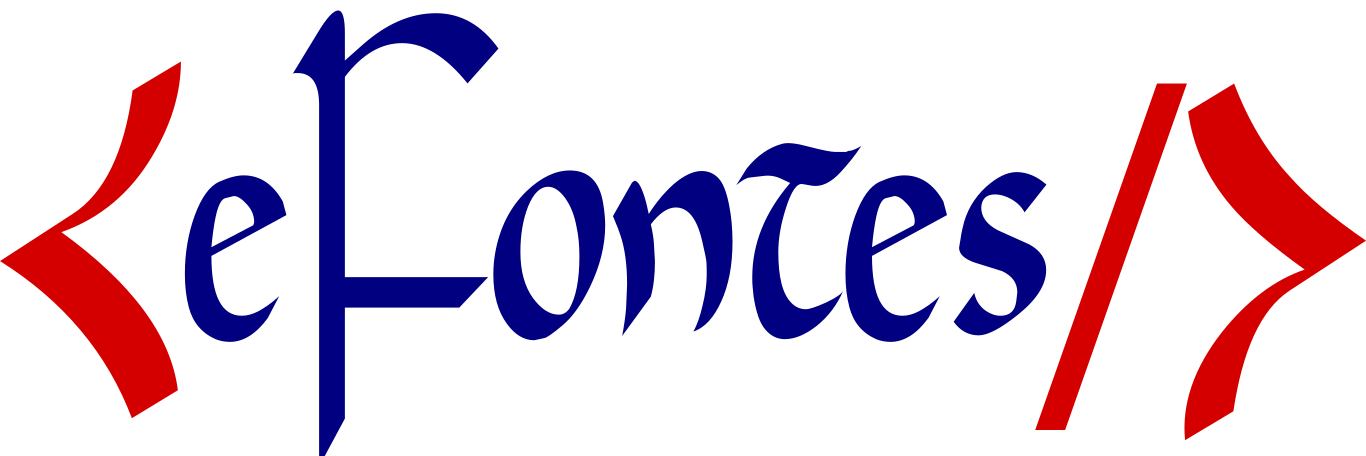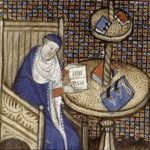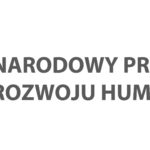1st eFontes Workshop: Call for Papers
Genres and functions of Polish medieval literature in the eFontes Corpus
Introduction
In days December 12-13, 2019 the first edition of the project's expert workshops will be held in Krakow eFontes. Electronic corps of Polish Medieval Latin carried out in the Medieval Latin Studio of the Institute of Polish Language of the Polish Academy of Sciences. The meetings organized every year are to deepen our knowledge about the diversity and richness of Latin literature of medieval Poland, and at the same time to discuss the most important aspects of creating the corpus of Polish medieval Latin. The meetings will also be an opportunity to present the project itself and learn about the expectations of the environment. This year the workshop's motto will be Representativeness: species and functions, because we would like to reflect on the genre and functional differentiation of Latin literature of medieval Poland.
In the field of representative linguistics, the name of a corpus which has the ambition to reflect the linguistic production of a given epoch, and the proportions of texts contained therein should, as far as possible, reproduce the diversity of functions and genres of writing. Thanks to a structure such as a representative sample in a survey research gives insight into the moods or views of the population, such a representative corpus should allow for empirical research on the language and culture of the Middle Ages.
Facile dictu ... In the historical corpus, as it is Electronic corps of Polish medieval Latin, achieving representativeness turns out to be quite a challenge. Problems are posed by the state of preservation and publication of Polish medieval monuments. Many works have not survived to our times, and the surviving ones are often still unpublished. This, in turn, means that some of the genres of literature are not and probably will not be properly represented in the corpus for a long time. A completely separate issue is the quality of the existing editions: some of them give a better insight into the Latinist preparation of the publisher than the linguistic competence of a medieval author. Good and excellent editions, in turn, are sometimes subject to copyright, which - again - effectively prevents their inclusion in the corpus.
However, the most serious challenge for the authors of the corpus is the very richness and diversity of Polish Latin literature. Although recent years have brought fundamental works on literacy (including the so-called loca scribendi) even in the cities of medieval Poland, and we have also received extremely helpful syntheses of the state of research and editions of e.g. Old Polish diplomacy, it seems, however, that we will have to wait for the full description of the functional, species and social diversity of Latin production in medieval Poland. And yet Electronic corps of Polish medieval Latin Its ambition is to reflect this richness, while at the same time being a tool available to researchers of various specialties, which entails the need to go beyond narrow approaches to sources and search for interdisciplinary approaches.
Participation in the conference
We cordially invite historians, linguists, literary scholars and representatives of other mediaeval specialties to participate in the workshop. We especially count on researchers with interdisciplinary experience, combining, for example, the workshop of a historian and a publisher of texts. Due to the nature of the project, we want papers whose authors, by taking a broad approach to the selected topic, will also provide a brief overview of the state of research, including contentious issues, and, if possible, indicate the consequences for the structure or content of the corpus. The speaking time should not exceed 30 minutes (+ discussion). We hope to finance the costs of travel and accommodation in Krakow from six to eight invited speakers.
Please send a shortened (up to 100 words) summary of your speech until May 26 2019, using the form below. Until June 2 you will be informed about the acceptance of the speech.
Please send all questions to krzysztof.nowak@ijp.pan.pl.
Speech topics
In their presentations, the speakers may talk about the following:
1. Typology of Polish Latin Medieval literature: problems and controversies.
2. How to study the diversity of the literature: functions, genres or types of texts?
3. Social diversity of medieval literature: class, age, gender ...
4. How to estimate the size of medieval production and measure the popularity of works for the corpus?
- catalogs of libraries and archives
- digital tools: manuscripta.pl, Fama
- citations and cryptocytes as a measure of popularity
5. „Białe plamy”: czego w korpusie brak, a znaleźć się w nim powinno (i dlaczego)?
- inscriptions, seals, etc.
- inedita
- Latin text in Polish monuments: glosses, marginalia ...
- is it possible to reconstruct primaryly spoken texts?
6. The practice of building historical corps
- representativeness and sustainability
- orthography: author, scribe, publisher?
- copyright and the corpus
- digital editions and the body
Important dates
- 26th of May 2019 - abstract submission deadline
- June 2 2019 - information about the acceptance of the paper
- July 28 2019 - deadline for submitting an extended version of the abstract
- December 12-13 2019 - workshops
Subsequent editions
https://scriptores.pl/efontes/warsztaty/
[: en]
1st eFontes Workshop: Call for Papers
Genres and functions of Polish medieval literature in the eFontes Corpus
Introduction
In days December 12-13, 2019 the first edition of the project workshop will be held in Krakow eFontes. Electronic corps of Polish Medieval Latin carried out in the Medieval Latin Studio of the Institute of Polish Language of the Polish Academy of Sciences. The meetings organized every year are to deepen our knowledge about the diversity and richness of Latin literature of medieval Poland, and at the same time to discuss the most important aspects of creating the corpus of Polish medieval Latin. The meetings will also be an opportunity to present the project itself and learn about the expectations of the environment. This year the workshop's motto will be Representativeness: species and functions, because we would like to reflect on the genre and functional differentiation of Latin literature of medieval Poland.
In the field of representative linguistics, the name of a corpus which has the ambition to reflect the linguistic production of a given epoch, and the proportions of texts contained therein should, as far as possible, reproduce the diversity of functions and genres of writing. Thanks to a structure such as a representative sample in a survey research gives insight into the moods or views of the population, such a representative corpus should allow for empirical research on the language and culture of the Middle Ages.
Facile dictu ... In the historical corpus, as it is Electronic corps of Polish medieval Latin, achieving representativeness turns out to be quite a challenge. Problems are posed by the state of preservation and publication of Polish medieval monuments. Many works have not survived to our times, and the surviving ones are often still unpublished. This, in turn, means that some of the genres of literature are not and probably will not be properly represented in the corpus for a long time. A completely separate issue is the quality of the existing editions: some of them give a better insight into the Latinist preparation of the publisher than the linguistic competence of a medieval author. Good and excellent editions are sometimes copyrighted, which - again - effectively prevents their inclusion in the corpus.
However, the most serious challenge for the authors of the corpus is the very richness and diversity of Polish Latin literature. Although recent years have brought fundamental works on literacy (including the so-called loca scribendi) even in the cities of medieval Poland, and we have also received extremely helpful syntheses of the state of research and editions of e.g. Old Polish diplomacy, it seems, however, that we will have to wait for the full description of the functional, species and social diversity of Latin production in medieval Poland. And yet Electronic corps of Polish medieval Latin Its ambition is to reflect this richness, while at the same time being a tool available to researchers of various specialties, which entails the need to go beyond narrow approaches to sources and search for interdisciplinary approaches.
Participation in the conference
We cordially invite historians, linguists, literary scholars and representatives of other mediaeval specialties to participate in the workshop. We especially count on researchers with interdisciplinary experience, combining, for example, the workshop of a historian and a publisher of texts. Due to the nature of the project, we want papers whose authors, by taking a broad approach to the selected topic, will also provide a brief overview of the state of research, including contentious issues, and, if possible, indicate the consequences for the structure or content of the corpus. The speaking time should not exceed 30 minutes (+ discussion). We hope to finance the costs of travel and accommodation in Krakow from six to eight invited speakers.
Please send a shortened (up to 100 words) summary of your speech until May 26 2019, using the form below. Until June 2 you will be informed about the acceptance of the speech.
Please send all questions to krzysztof.nowak@ijp.pan.pl.
Speech topics
In their presentations, the speakers may talk about the following:
1. Typology of Polish Latin Medieval literature: problems and controversies.
2. How to study the diversity of the literature: functions, genres or types of texts?
3. Social diversity of medieval literature: class, age, gender ...
4. How to estimate the size of medieval production and measure the popularity of works for the corpus?
- catalogs of libraries and archives
- digital tools: manuscripta.pl, Fama
- citations and cryptocytes as a measure of popularity
5. „Białe plamy”: czego w korpusie brak, a znaleźć się w nim powinno (i dlaczego)?
- inscriptions, seals, etc.
- inedita
- Latin text in Polish monuments: glosses, marginalia ...
- is it possible to reconstruct primaryly spoken texts?
6. The practice of building historical corps
- representativeness and sustainability
- orthography: author, scribe, publisher?
- copyright and the corpus
- digital editions and the body
Important dates
- 26th of May 2019 - abstract submission deadline
- June 2 2019 - information about the acceptance of the paper
- July 28 2019 - deadline for submitting an extended version of the abstract
- December 12-13 2019 - workshops
Subsequent editions
https://scriptores.pl/efontes/warsztaty/
[:]



